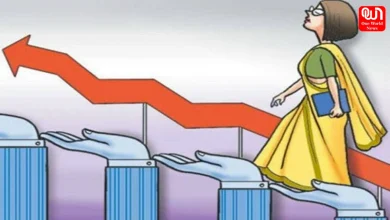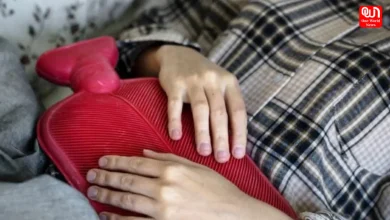Naomi Osaka: Mental health in sports

Naomi Osaka’s decision created a stir in the tennis world
World’s no. 2 Tennis player Naomi Osaka has been out of the French Open on her own due to mental health. Announcing her decision, she wrote – I have been facing depression since winning my first Grand Slam title in the year 2018. She said that she is an introvert and gets very nervous while speaking on a public platform. Naomi also raised questions on the rules and said that when the time is right, she would like to discuss it with the organizers.

On Sunday itself, Osaka defeated Patricia Maria Tig of Romania in straight sets in her first match of the French Open. But for not appearing in front of the media, the organizers fined him 15 thousand dollars. The president of the French Tennis Federation, Gilles Moreton, has said that the withdrawal of the second-seeded player from the competition is unfortunate. “We feel sorry for Naomi. We wish her a speedy recovery and look forward to competing in the competition next year,” he said.
What does Naomi Osaka have to say?
— NaomiOsaka大坂なおみ (@naomiosaka) May 31, 2021
She has clarified her position on the whole matter, writing, “This is not a situation that I ever imagined or intended when I posted a few days ago. I believe that it is now for this tournament and other players. The best thing for me is to withdraw from this competition so that everyone can focus on the competition going on in Paris. She further wrote, ” I never wanted to get distracted and I accept that my timing was not ideal and my message could have been more clear.

More importantly, I will never take mental health for granted or use it lightly. But the truth is that since the 2018 US Open, I have suffered from depression and I have had to struggle a lot to deal with it”.
Also Read: Yuvika Chaudhary to International Footballer Sangeeta Soren, a wrap of Women in News last week
Many players come out in support
America’s Coco Gough, the world’s number 25 player, said – “stay strong, I am a fan of your sensitivity.” Martina Navratilova of America, who won the Grand Slam title 18 times, said, “I am very sad about Naomi Osaka. I hope she will be fine. As an athlete, we have to take care of our body and maybe the mental and emotional aspects become trivial. It’s not just a matter of having a press conference or not. Good luck Naomi, we’re all with you.” Naomi’s fellow player Serena Williams of America said – I can feel Naomi’s trouble. I wish I could hug her because I too have been in such situations. You should let her do whatever she wants to face it.”
How do other sports persons also get affected by mental health?
England women’s cricket team’s talented wicket-keeper batsman Sarah Taylor started a discussion among the players about mental health problems after retiring from international cricket due to anxiety. Recently, three Australian players Glenn Maxwell, Will Pucovski, and Nick Maddinson took a break from cricket keeping in mind their mental health.
The swashbuckling Karnataka batsman and part-time wicketkeeper Robin Uthappa said that he struggled with depression and suicidal thoughts for two years in his career when cricket was the only factor that prevented him from jumping off the balcony. Uthappa said in the Royal Rajasthan Foundation’s live session ‘Mind, Body, and Soul’, ‘I remember between 2009 and 2011 it was happening continuously and I used to face it every day. I was not even thinking about cricket at that time.
Indian opener Abhinav Mukund said that when he was going through a difficult phase, he did not have the courage to talk to anyone about his mental problem as he felt that no one cares about these things. But Mukund agreed that times have changed and the matter should be taken seriously.
Naomi Osaka’s decision has added conversation around mental health in sports. We often neglect the so-called taboo subject around mental health in sports. We need to acknowledge the fact that mental health is a real thing, and in the athletics domain it takes serious bravery for these high-profile athletes to come out and use the word ‘depression’ or use the word ‘anxiety. We need to accept them with open arms because one day we have to accept mental health issues that could happen with people who belong to sports.
Have a news story, an interesting write-up or simply a suggestion? Write to us at info@oneworldnews.com







